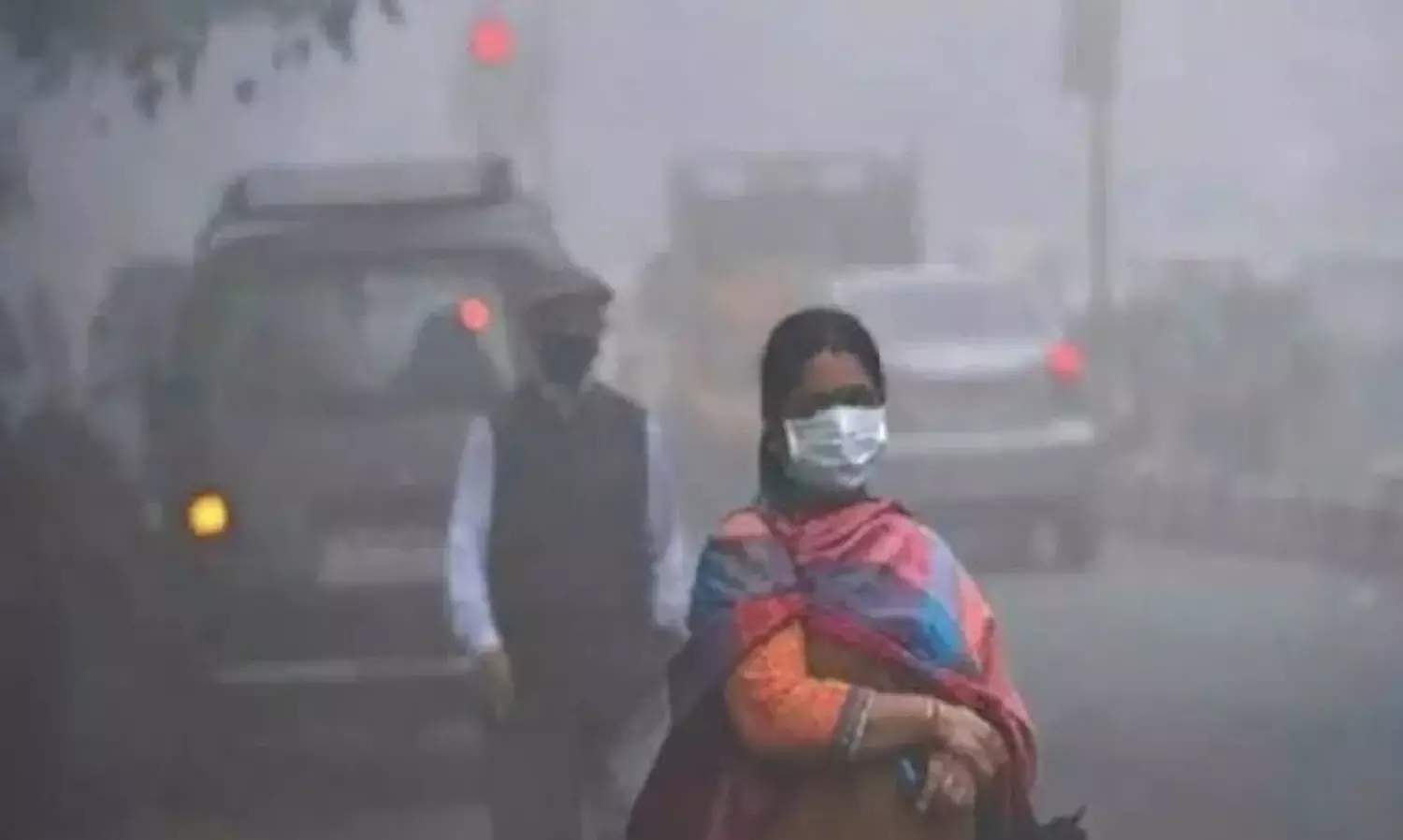Delhi Polls: Is the Environment Finally an Election Issue?
'The government itself is the biggest polluter in many ways'

With Delhi elections just around the corner, political parties have been busy preparing their manifestoes for the upcoming polls. A few parties have also been consulting city residents to prepare an inclusive manifesto. As a result of such campaigns, people have started expressing their sense of urgency on matters ranging from women’s safety to environment conservation.
With increasing environmental degradation and its immediate consequences, the environment has become central to public discourse. Air quality in the capital has already been shuffling between indices suggesting ‘poor’ and ‘very poor’ in the last few months. But it is still difficult to find among the top priorities for political parties in the forthcoming election.
Some believe the environment is not an election issue for parties because only a handful of people in the huge population understand it as a critical existential issue.
Jyoti Pande Lavakare, co-founder of Care for Air India says “There is a lack of awareness of how the environment affects our health and existence, the connection has not yet been made… That polluted air or polluted water can directly impact their health and it is all related.”
Meanwhile, as environmentalist Bhavreen Kandhari says, “The elite knows that it can buy everything from clean air to clean water, while the underprivileged becomes the worst sufferer.”
The environment would move up much faster as a priority, Lavakare believes, when people stop thinking of the environment as an elitist issue. Kandhari agrees that it is important to connect environmental with health issues, for instance: “Apart from respiratory disorders, the key areas to look out for are a rise in premature pregnancies and depression or mental disorders due to a lack of clean air.”
Many voters still aren’t aware of the many connections between the environment and health.
There are other obstacles too, such as the role of commercial lobbies in shifting focus from the environment. “The disconnect between private profits and public accountability does not allow the environment to become an important enough issue, especially in today’s times of climate change,” says Lavkare.
And come election time, attempts to subdue ecological issues are redoubled, Kandhari believes. “As much as the government speaks on climate change and renewable energy at the international forums, it is not being followed,” she says, citing the examples of coal mining projects in Hasdeo, Chattisgarh and Talabira, Odisha.
The government must impose penalties, Lavakare emphasises, explaining “Why should I be motivated to use better quality fuel when nobody is penalising me for using poor fuel, which is cheaper but is polluting?”
In India most of the polluting industries are publicly owned, she adds. “The government itself is the biggest polluter in many ways, especially in the case of air pollution.”
Delhiites who will be voting next week believe the environment has become a major election issue along with other matters of concern.
“I expect the parties to announce some plans that will help in making Delhi’s air quality better,” says Suhaib Masood, a resident of Nizamuddin. He adds that he would want to see a clean and green Delhi. Another voter, postgraduate student Parni Sharma, feels that “Women’s safety, air pollution, waste disposal management and strict rules against animal cruelty are the most important issues right now.”
Being voters who reside in the capital, they say they have been affected by the rising pollution, just like everyone else in Delhi.
Kunwar Suryansh has a different perspective, however. The political science student believes “The environment must be a central issue in Delhi but maybe not the topmost agenda. People have other basic issues that haven’t been addressed yet.”
In politics, Suryansh points out, the discourse on environment is usually a blame game. Often the onus keeps shuffling between the people and the government.
Underlining the lack of intent from the government’s side, Sharma says, “I have never seen a political party give importance to the environment since it’s a no-man’s loss for them. We are literally living in a gas chamber.” Providing free air masks at schools, odd-even traffic rules or air purifiers alone will not do justice, she believes.
But for Masood, “If people were concerned enough, Delhi’s environment would have been better. Due to this lack of concern, political parties don’t focus on the environment.”
“People do care about the environment,” Suryansh believes, “but only when the situation morphs into a crisis. This is why pollution in Delhi becomes an issue in winters because that’s when it is visible.”
As for political parties, Sharma thinks “Parties cannot use the environment as an issue to blame other political parties.”
For the coming elections these voters believed the Roti-Kapda-Makaan or Food-Clothes-Shelter discourse would dominate everything and the environment would be deterred from becoming a priority.
The coming elections provide an opportunity, says Lavakare, “If Delhi takes the lead and whichever government comes in, if it does make the environment amongst its top priorities, that will show the way to other states.”
So far only the Aam Aadmi Party has released part of their manifesto, calling it a Guarantee Card. Two of this brief version of the manifesto’s 10 points deal directly with the environment: Clean Air, reviving the River Yamuna, and an increase in green cover in Delhi have been made a part of the guarantees.
The Bharatiya Janata and Congress Parties had not released their manifestos at the time of writing.


